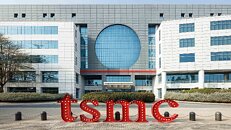- Joined
- Aug 19, 2017
- Messages
- 2,709 (1.00/day)
Taiwanese political officials have agreed to discuss transferring TSMC's advanced 2 nm chip technology to allied democratic nations, but only after establishing the main mass production launch in late 2025 in Taiwan. This new stance comes amid growing international pressure and recent comments from upcoming US president Donald Trump about semiconductor manufacturing. The announcement by National Science and Technology Council Minister Cheng-Wen Wu marks a notable departure from earlier statements by Economic Affairs Minister J.W. Kuo, who had previously emphasized legal restrictions on transferring leading-edge process technology overseas. Interestingly, these different positions aren't so different from one point: timeline of node deployments. As TSMC produces latest nodes in Taiwan, overseas production will lag by a generation or two.
TSMC plans to implement its 2 nm technology in US facilities by 2030. The company's Arizona facility, Fab 21, will begin with less advanced N4 and N5 processes in early 2025 and progress to 3 nm technology by 2028. However, this timeline could face pressure for acceleration, mainly if new trade policies are implemented. Industry analyst Dan Nystedt points out significant challenges in transferring advanced chip production. Integrating research and development with manufacturing processes in Taiwan provides crucial advantages for initial production ramps, making simultaneous mass production launches in multiple locations technically challenging. Simply put, there aren't enough capable engineers, scientists, and factory workers capable of doing what TSMC accomplishes in Taiwan.

Trump's recent criticism of the CHIPS and Science Act, suggesting tariffs as an alternative to current incentives, has raised questions about future US approaches to securing domestic chip production. The potential technology transfer faces practical limitations, including global shortages of fabrication equipment and the complex nature of establishing advanced semiconductor facilities. These challenges could impact any accelerated timeline for implementing 2 nm production capabilities outside Taiwan. However, the 2 nm node could come to US facilities by the end of the next decade. By then, more advanced nodes will be produced in Taiwan.
View at TechPowerUp Main Site | Source
TSMC plans to implement its 2 nm technology in US facilities by 2030. The company's Arizona facility, Fab 21, will begin with less advanced N4 and N5 processes in early 2025 and progress to 3 nm technology by 2028. However, this timeline could face pressure for acceleration, mainly if new trade policies are implemented. Industry analyst Dan Nystedt points out significant challenges in transferring advanced chip production. Integrating research and development with manufacturing processes in Taiwan provides crucial advantages for initial production ramps, making simultaneous mass production launches in multiple locations technically challenging. Simply put, there aren't enough capable engineers, scientists, and factory workers capable of doing what TSMC accomplishes in Taiwan.

Trump's recent criticism of the CHIPS and Science Act, suggesting tariffs as an alternative to current incentives, has raised questions about future US approaches to securing domestic chip production. The potential technology transfer faces practical limitations, including global shortages of fabrication equipment and the complex nature of establishing advanced semiconductor facilities. These challenges could impact any accelerated timeline for implementing 2 nm production capabilities outside Taiwan. However, the 2 nm node could come to US facilities by the end of the next decade. By then, more advanced nodes will be produced in Taiwan.
View at TechPowerUp Main Site | Source





